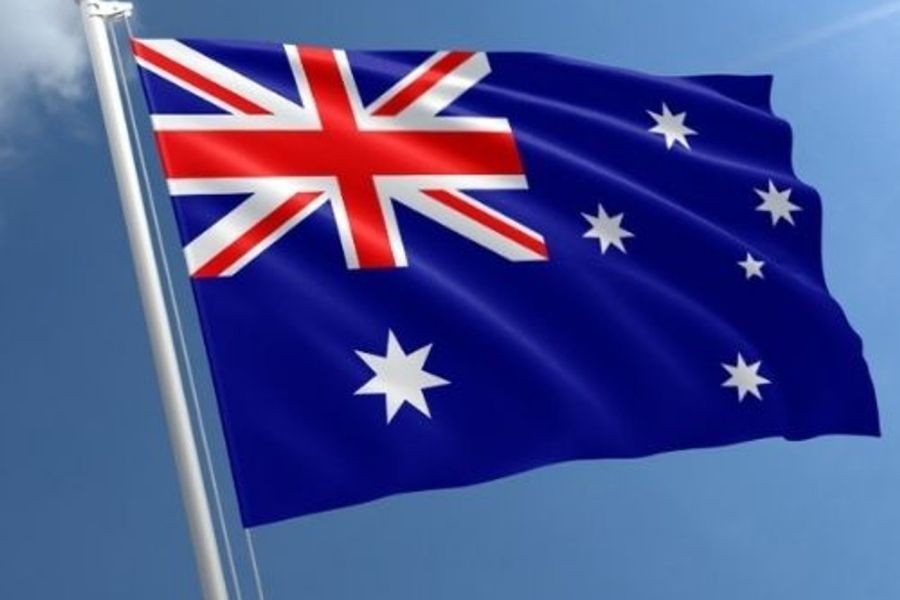Did you know that Australia almost adopted a different national flag? While the current flag has been a symbol of national identity since 1901, there have been several attempts and public debates over the years to change it. This article explores the historical context, the reasons behind these attempts, and the implications such a change could have had on Australia's national identity and its industries, including the renewable energy sector.
Historical Context: The Origins of Australia's Flag
The current Australian flag was first flown in 1901 following a design competition that attracted over 32,000 entries. The winning design incorporated the Union Jack, representing Australia's historical ties to Britain, and the Southern Cross, a constellation visible in the southern hemisphere. However, the national flag has been a subject of debate, with discussions around changing it surfacing at various points in history.
Why Consider a Different Flag?
The debate over the Australian flag largely revolves around issues of national identity and independence. Critics argue that the Union Jack represents colonial ties that do not reflect modern Australia's multicultural society. Proponents of a new flag suggest designs that emphasize indigenous culture and Australia's unique geographical identity. These discussions are not only cultural but also have economic implications, as branding plays a significant role in global markets.
Impact on National Identity and Industries
A change in national symbols can significantly influence a country's global perception. For industries like renewable energy, which rely on international partnerships and investments, a new flag could symbolize a forward-thinking and independent Australia. This perception could encourage more global collaborations and investments in Australia's growing clean energy sector.
Australia's Economy and Renewable Energy
Australia's commitment to renewable energy is crucial for its economy, given the country's abundant natural resources. According to the Australian Bureau of Statistics (ABS), renewable energy sources accounted for 29% of Australia's electricity generation in 2020, with a projected increase to 50% by 2030. This shift towards clean energy is not only environmentally necessary but also economically advantageous, as it reduces dependence on fossil fuels and creates new job opportunities.
Policy and Regulation Insights
The Australian government has implemented several policies to support the transition to renewable energy, such as the Renewable Energy Target (RET) and various state-level initiatives. The Australian Competition & Consumer Commission (ACCC) ensures that these transitions are fair and competitive, preventing monopolistic practices in the energy market. Such regulatory frameworks are essential for maintaining a balanced and competitive energy sector.
Global Examples and Their Relevance to Australia
Countries like Germany have successfully transitioned to renewable energy, with over 40% of their electricity generated from renewables in 2019. Australia's similar geographical and economic conditions make these global examples highly relevant. By adopting proven strategies and technologies, Australia can accelerate its progress in the renewable energy sector, benefiting both the environment and the economy.
Case Study: Australia's Leading Renewable Energy Company
Case Study: AGL Energy – Leading the Renewable Charge
Problem: AGL Energy, one of Australia's largest energy companies, faced the challenge of transitioning from fossil fuels to renewable energy amidst growing environmental concerns and regulatory pressures.
- The company struggled with balancing traditional energy production with increasing renewable demands.
- Industry data showed that companies lagging in renewable adoption faced potential revenue losses and regulatory fines.
Action: AGL Energy invested heavily in renewable projects, including wind and solar farms, and set a target to become carbon neutral by 2050.
- They leveraged cutting-edge technology and strategic partnerships to enhance energy efficiency and expand their renewable portfolio.
- The implementation involved significant investment in research and development to optimize energy production.
Result: After five years, AGL Energy achieved remarkable success:
- Renewable energy production increased by 30%.
- Operational costs decreased by 15% due to improved efficiency.
- AGL's market share in the renewable sector grew by 20%, solidifying its position as a leader in the industry.
Takeaway: AGL Energy's success underscores the importance of proactive investment in renewable energy. Australian businesses can emulate this strategy to enhance sustainability and competitiveness in the global market.
Pros and Cons of Changing the National Flag
Pros:
- National Identity: A flag change could better represent Australia's multicultural society and indigenous heritage.
- International Perception: A new flag could symbolize a modern, independent Australia, potentially boosting international trade and partnerships.
- Economic Branding: A new national symbol could enhance Australia's brand, attracting tourism and investment.
Cons:
- Historical Significance: The current flag has historical value and represents Australia's journey as a nation.
- Cost of Transition: Changing the national flag would involve significant costs, from updating official documents to public buildings.
- Public Sentiment: A change might not be well-received by all Australians, leading to potential social divisiveness.
Common Myths and Mistakes
Myth: "Changing the flag will automatically lead to economic benefits."
Reality: While a new flag can enhance national branding, economic benefits depend on strategic implementation and international perception.
Myth: "The current flag is universally accepted by all Australians."
Reality: Surveys indicate a divide in public opinion, with a significant portion of the population open to a change that better reflects Australia's diversity.
Myth: "A flag change is merely symbolic and has no real impact."
Reality: Symbols play a crucial role in national identity and can influence international relations and economic partnerships.
Future Trends and Predictions
As Australia continues to evolve both culturally and economically, discussions about national symbols like the flag will persist. By 2030, it's predicted that Australia will solidify its position as a leader in renewable energy, with half of its electricity generated from renewables. This shift will likely influence national symbols, reflecting a modern and sustainable Australia.
Conclusion
Australia's national flag represents more than just a symbol of identity; it encompasses the country's values, history, and future aspirations. While changing the flag could offer new opportunities for branding and international perception, it requires careful consideration of cultural, economic, and societal impacts. As Australia advances in renewable energy and global partnerships, the flag debate will continue to shape the nation's identity and future.
What are your thoughts on Australia's flag debate? Share your insights below!
People Also Ask
How does changing Australia's flag impact businesses?Changing the flag could enhance Australia's global brand, potentially attracting more international trade and tourism, benefiting businesses across various sectors.
What are the biggest misconceptions about Australia's flag?A common myth is that the current flag is universally accepted. However, many Australians support a change to better represent the nation's diversity.
What are the best strategies for implementing a flag change?Experts recommend a comprehensive public consultation process, phased implementation, and strategic international branding to optimize the benefits of a flag change.
Related Search Queries
- History of the Australian flag
- Debate on changing Australia's flag
- Impact of national symbols on economy
- Renewable energy in Australia 2030
- Australia's national identity
- AGL Energy renewable projects
- Cultural significance of flags
- International perception of Australia
- Pros and cons of changing national symbols
- Future of renewable energy in Australia

































jaredjankowski
5 months ago